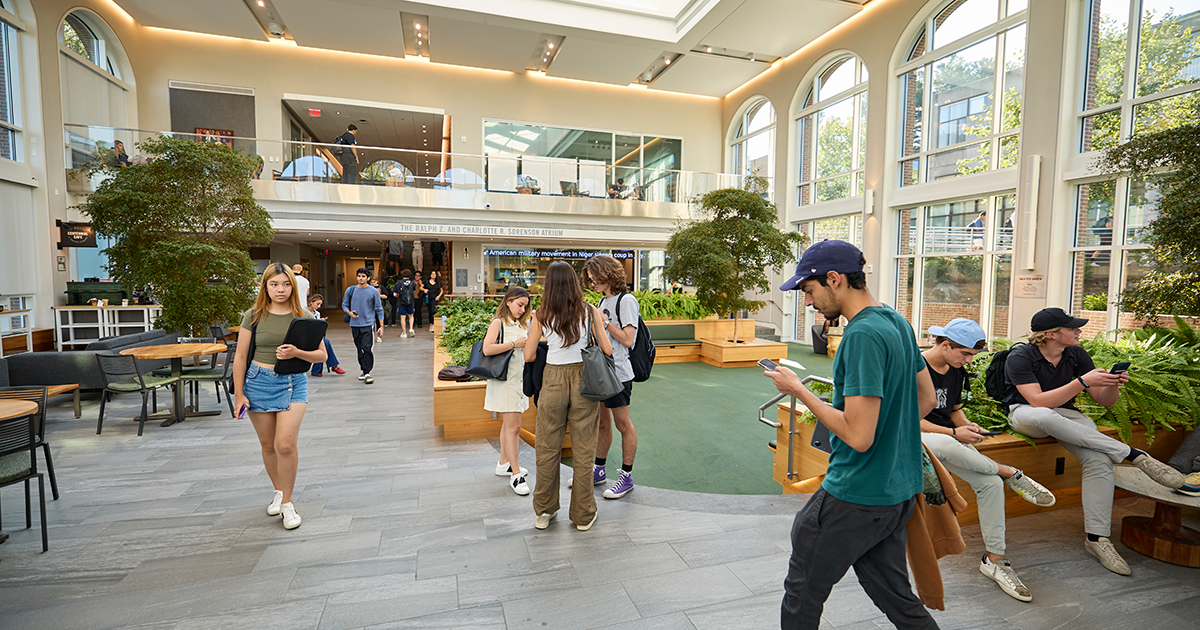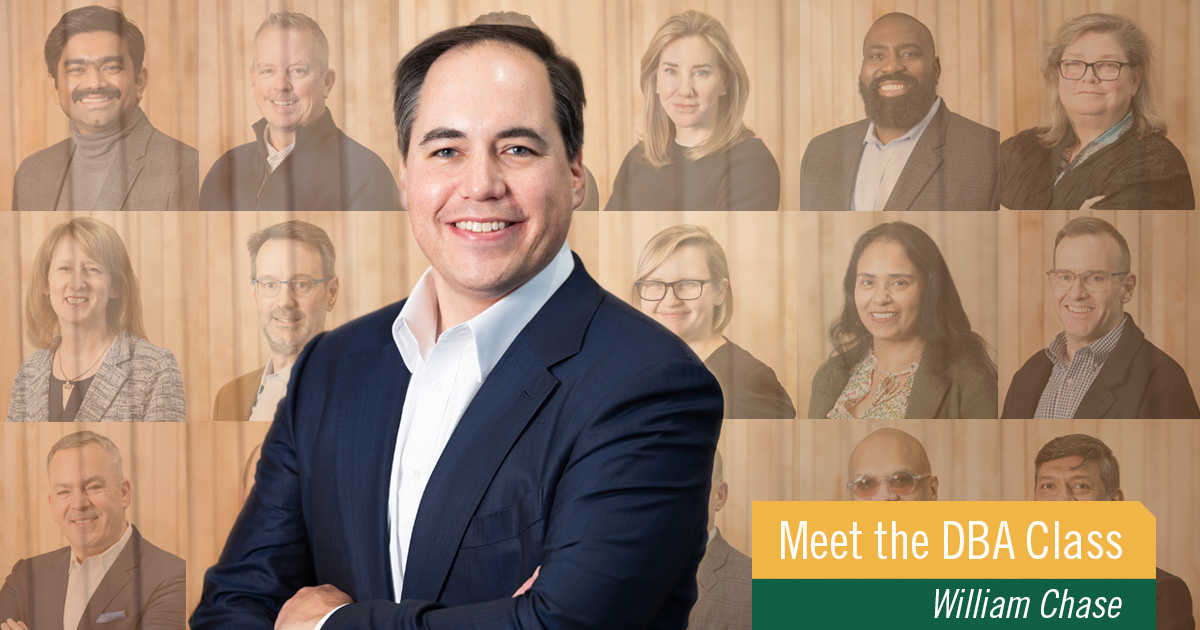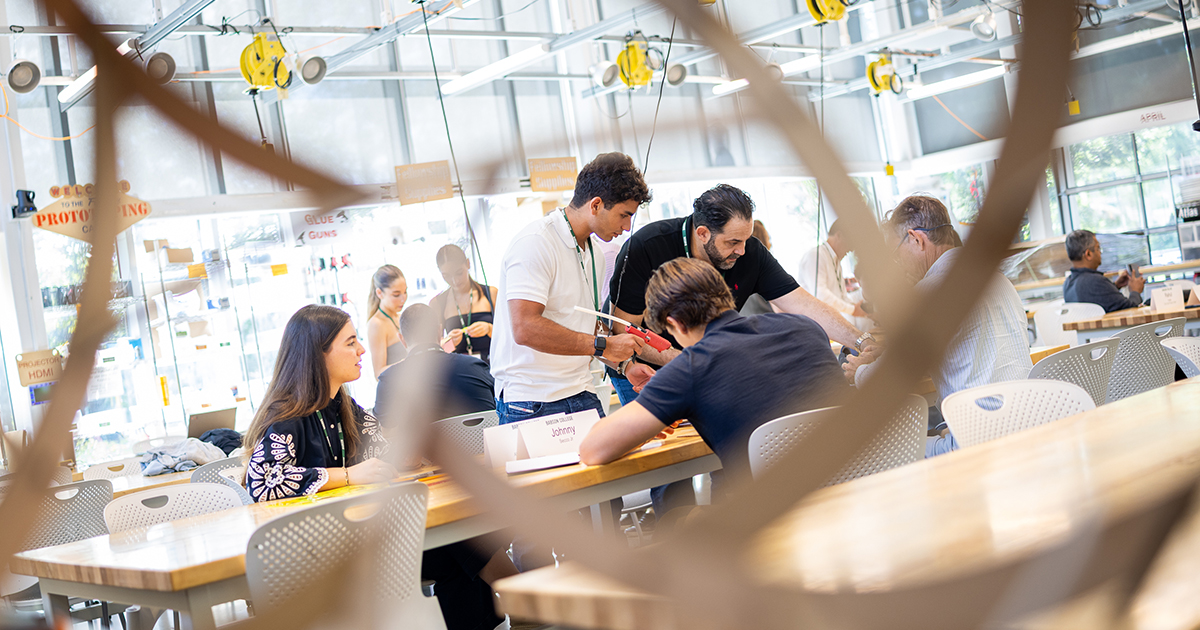A Day for Questions, Insights, and Connections
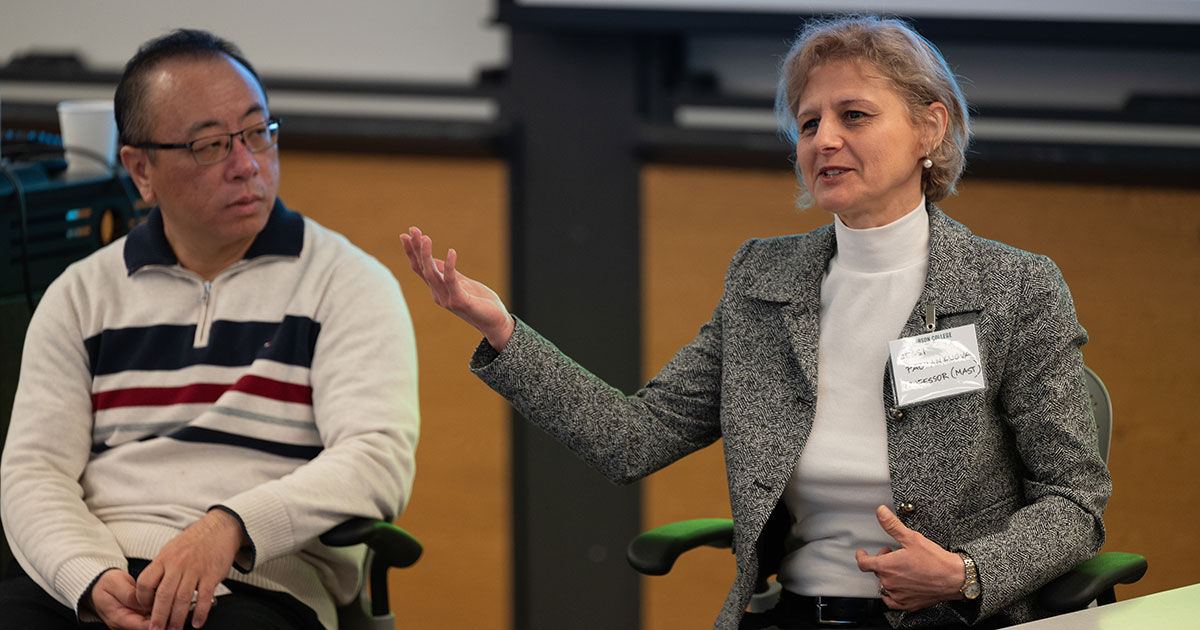
The American healthcare system is a beast. It’s big. And complicated. And entrenched. And costly. To attempt to make improvements in the vastness of it all is a daunting proposition.
For the past five or six years, Dessislava Pachamanova has been conducting research on healthcare operations. “There are so many challenges there,” said the professor of analytics and computational finance and the Zwerling Faily Endowed Term Chair.
And yet, she says, there is opportunity to make a difference. Tackling the vast system on a holistic basis may be near impossible, but if one sharpens their focus, concentrating on one issue in a sea of many, change can be made.
“You can’t do it all,” agreed Wiljeana Glover, the Stephen C. and Carmella R. Kletjian Foundation Distinguished Professor of Global Healthcare Entrepreneurship. “I think you can choose a lane of impact, and through collaboration, affect change in individual hospitals or clinics and then see how that expands. You choose your place where you want to start and allow that to grow.”
Health care is a rich area of research at Babson, as it’s the home of The Kerry Murphy Healey Center for Health Innovation and Entrepreneurship, of which Glover is the founding faculty director. Both she and Pachamanova spoke of their healthcare work last week at Faculty Research Day, an annual showcase of the wide range of scholarship happening at Babson.
At Faculty Research Day, professors take turns sharing their scholarly explorations with peers. It’s a day for questions, insights, and connection.
Climate Change, Health Care, and Work
This year’s Faculty Research Day began with a welcome from Ariel Armony, Babson’s new provost, who started at the College in November.
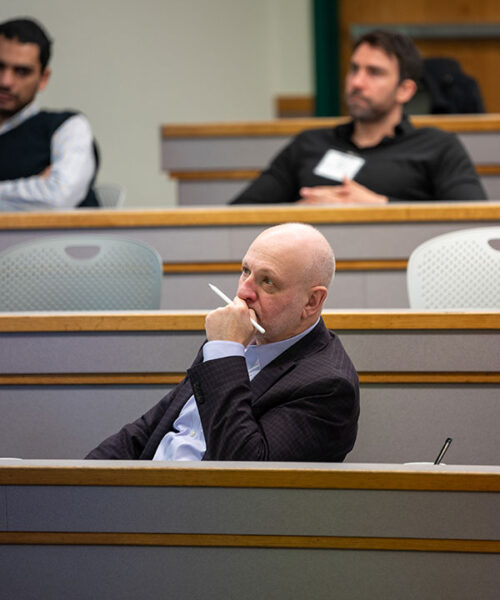
“I am eager to learn from all of you today,” Armony told the professors gathered in Malloy Hall for the day. “Thank you for your contributions to making Babson a place where the research community is dynamic and impactful.”
Armony took a moment to speak of his own research. He’s currently working on a new book project examining the complex interplay between climate change and human migration. “Climate change continues to reshape our world and increasingly drive displacement,” he said.
During the course of Faculty Research Day, professors discussed a dizzying range of scholarship. In the Healthcare Operations and Analytics panel that included Glover and Pachamanova, for instance, professors talked of addressing the shortage of healthcare workers, of improving scheduling, wait times, and workflows, and of bringing innovation to patient care.
“Hopefully, this will inspire some of you to do research in this area as well,” Pachamanova told the professors in the audience.
Another panel examined the future of work, diving into the dread and excitement people feel toward technology and how it is altering their relationship to the work they do.
Tech changing the nature of employment is nothing new, said Sebastian Fixson, The Marla M. Capozzi MBA’96 Term Chair in Design Thinking, Innovation, and Entrepreneurship and the faculty director of Babson’s recently launched Doctor of Business Administration program. Professors once had to roam library stacks to find the journals they needed, for example, and draftsmen used to draw up plans for physical products with pencil and paper. New tools have long since altered those processes.
In the future, workers need to figure out what the new jobs will be that technology will help create. “If we focus on competing head on with generative AI, the chances are we don’t stand any chance,” he said. “Where is the new work? That will be the big topic for us in the years ahead.”
A Landmark Panel on Teaching
One landmark panel at Faculty Research Day featured work from professors who received grants from a new program run by Babson’s Center for Engaged Learning & Teaching (CELT). Those Pedagogical Research Grants support professors seeking to investigate and improve aspects of their teaching.
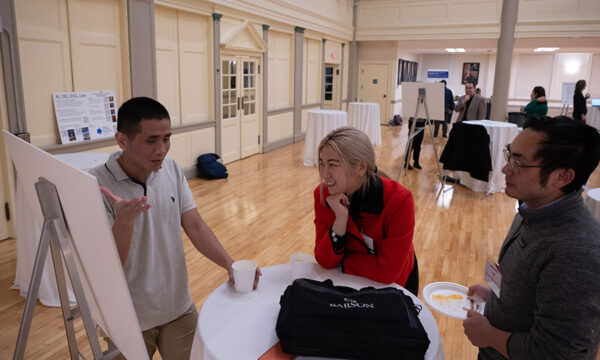
“This is a historic session at Faculty Research Day. This has never had a dedicated panel,” said Beth Wynstra, associate professor of English and CELT’s faculty director. “We were blown away by the research that came in. I am so excited to have our initial class of grantees.”
On the panel, professors discussed projects that examined the teaching of programming with generative AI tools; the reliance on “cheat sheets” (study aids made by students) for exams; and the usage of verbal questions to evaluate students during quizzes.
Associate Teaching Professor Kristi Girdharry, director of The Writing Center, and Stephen McElroy, assistant professor of rhetoric and composition and director of First-Year Writing, discussed the ongoing interviews they’ve done with students regarding writing. The pair asked students to reflect on the writing they do in their lives outside of the classroom, such as in journals and emails, and on how AI has impacted their approach to writing, critical thinking, and problem solving.
Student responses revealed the creative and wide-ranging ways they are utilizing AI. They use the technology to craft professional-sounding emails, for instance, or to assist with research and brainstorming. One student used it to put together a nondisclosure agreement for a startup, while another fed 15 job descriptions into AI and asked it to summarize the key qualities companies are seeking.
Wynstra says the Pedagogical Research Grants give professors the support to pursue investigations that may not necessarily turn into published journal articles but which are critical to learning in the classroom. “There is a need for faculty to feel freedom to do research around pedagogical issues,” she says. “This research may just help with teaching at Babson.”

